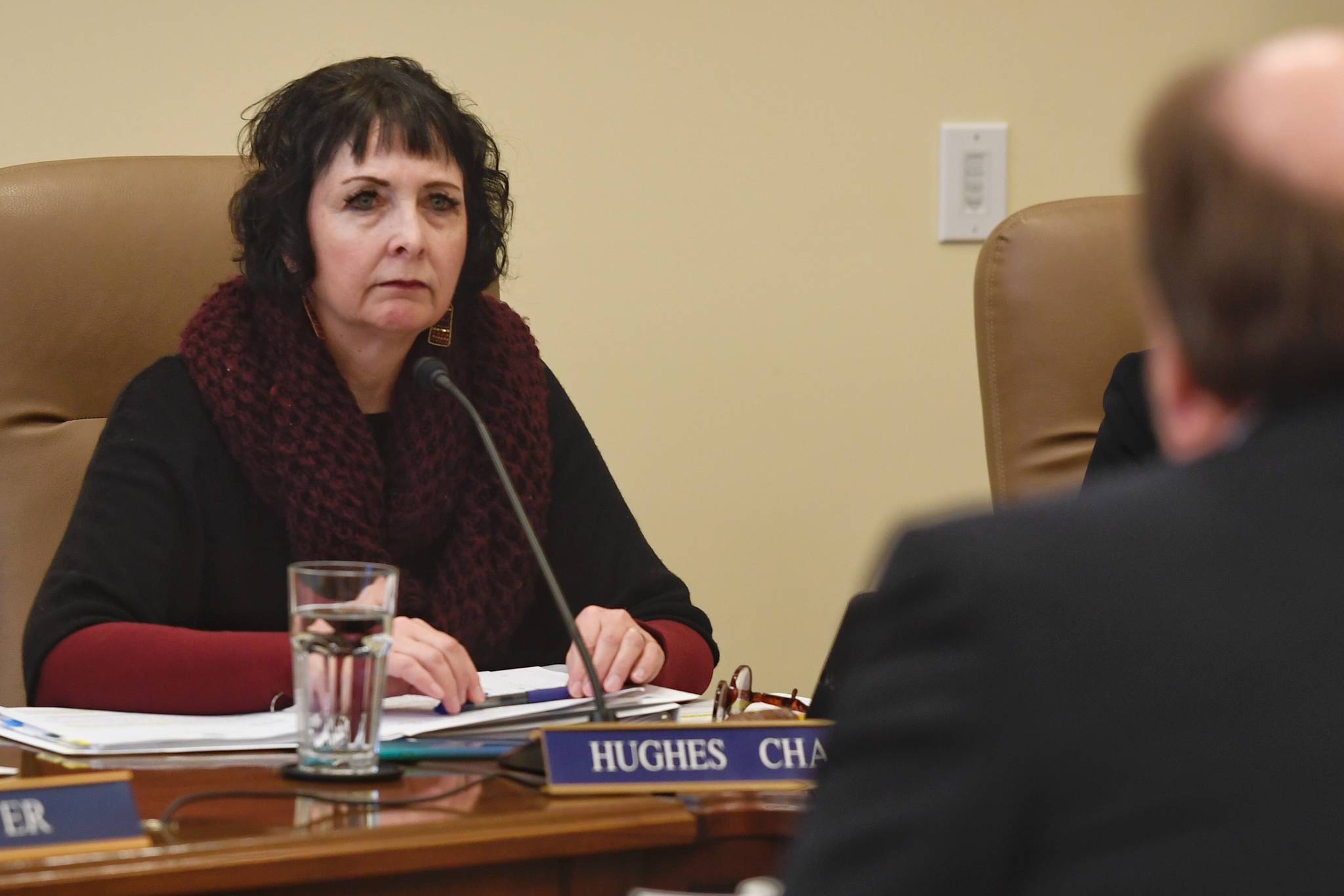For years, Sen. Shelley Hughes, R-Palmer, has heard from her constituents that health care costs have risen too high in Alaska.
This session, she was planning on doing something about it. She introduced Senate Bill 27, which would require insurance providers to have an incentive program to help patients pursue health care for a lower price. Then, less than three weeks into session, she had to withdraw her bill because of new ethics rules instituted for this session.
The new rules, instituted as part of House Bill 44 and signed into law last year, dictate that a legislator can’t vote on a bill if they or a family member can benefit financially from that bill. The law also forbids legislators from having private conversations about a bill.
[Legislature’s new ethics law extends to private discussions]
Hughes’ husband works in the health care field, she explained on the Senate floor this past Friday. She explained in an interview that the bill actually would have hurt her husband financially, but she wanted to get the bill passed for the constituents she’s been hearing from for years. Health care in Alaska is the highest in the nation by a wide margin, Hughes said, and health care provider Premera posted a study in 2017 that health care in Alaska is more than twice as high as the national average.
The weekend after withdrawing the bill, she heard from her constituents again. She held an informal public meeting where around 40 people showed up to ask her questions and get an update on how session was going. They were also there to provide feedback.
“They were infuriated to hear that I had to pull that bill,” Hughes said.
Even talking in an interview in her office Tuesday, Hughes was cautious about how specific she was about health care. She said she believes HB 44 has good intentions, but it’s just too broad and prevents legislators from delving into some of Alaska’s biggest issues.
HB 44 requires legislators to declare if they or a family member are financially affected by legislation under discussion. The conflict has to be worth at least $10,000, the bill states. If the legislation comes to the floor of the House or Senate, the lawmaker has to declare a conflict there and request to be excused from voting. It only takes one objection from another legislator to force that person to vote, though, according to the law.
The bill, which was introduced in 2017 by Rep. Jason Grenn, I-Anchorage, was seen at the time as mainly focused on lawmakers who have connections to the oil industry. At the time, that would have affected Sens. Peter Micciche and Kevin Meyer in particular.
Micciche is still a ConocoPhillips employee, according to the information he provided for the Empire’s Legislative Guide. Meyer, who is now the lieutenant governor, no longer works for ConocoPhillips, according to his information for the Legislative Guide.
In a small state in terms of population, and with a citizen legislature where lawmakers have other jobs outside the Capitol, people are bound to have connections to major issues in the state, Hughes said.
She’s not alone in thinking that, as there’s a bipartisan effort to clarify these ethics rules. Both she and Sen. Tom Begich, D-Anchorage, said they believed there was widespread agreement that the bill needs to be smoothed out to not be so broad. Begich said too many parts of the bill are open to interpretation.
In an interview Wednesday, Begich (the Senate Minority leader) said he believes the Senate Majority is preparing to introduce a bill next week that could help clear up some of the ambiguous language in HB 44.
Begich has a scholarship fund that helps children who want to go into education, and he declared a conflict of interest recently during a meeting about the University of Alaska Anchorage’s education school. Members of the statewide Board of Education came to meet with Begich, he said, and he had to turn them away because of the conflict.
Begich said the members of the board were unhappy that they couldn’t meet with him, but they understood the situation. Like Hughes, Begich said he believes in the spirit of the bill, but would like to see it not be so broad.
“It’s really important to us to maintain the public’s trust,” Begich said. “The key is, what are those ambiguities in the law now that must be corrected so that we can still do our jobs in a way that serves our interest to the public at the same time ensuring that there’s no crossing that line by those who might be inclined to do so?”
• Contact reporter Alex McCarthy at 523-2271 or amccarthy@juneauempire.com. Follow him on Twitter at @akmccarthy.

